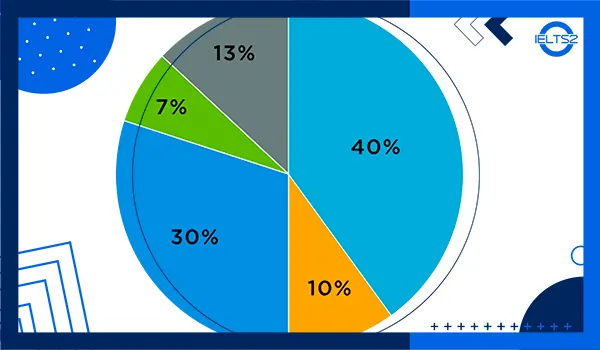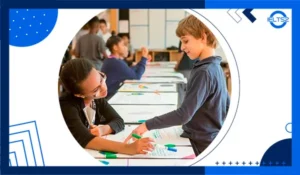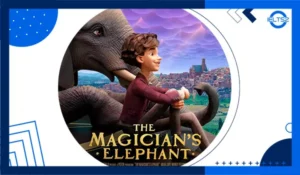دسته بندی رایج ترین پرسش های پارت سوم اسپیکینگ آیلتس
در اینجا نگاهی به انواع سوالات رایج در بخش سوم مصاحبه آیلتس خواهیم داشت و این سوالات را از نظر جنس و نوع دسته بندی میکنیم. آشنایی با انواع سوالات زبان آموزان را برای ارایه پاسخ هایی هر چه بهتر آماده کرده و زمینه را برای دریافت نمره بالاتر فراهم خواهد کرد. بسیاری از منابع سوالات پارت سوم اسپیکینگ آیلتس را به 7 نوع کلی دسته بندی میکنند:
گروه اول سوالات رایج بخش سوم مصاحبه آیلتس: نوع Opinion
دیدگاه ما درباره موضوعی که توسط اگزمینر مطرح شده چیست؟
Do you think technology has made communication better or worse?
In your opinion, should children be taught to compete or cooperate?
How important do you think it is to preserve traditional customs?
Do you believe that governments should fund the arts?
Some people say advertising is manipulative. What’s your view?
Is it better to live in a big city or a small town? Why?
Should education be free for everyone? Give your opinion.
Do you think people rely too much on technology nowadays?
How far do you agree that social media has a negative impact on society?
Should fast food be banned to encourage healthier eating habits?
گروه دوم سوالات رایج بخش سوم مصاحبه آیلتس: نوع Evaluate
در این نوع سوال باید (1) درباره نظرمان در مورد یک موضوع مشخص یا (2) برتری ها و کاستی های یک چیز مشخص که توسط اگزمینر مطرح شده صحبت کنیم:
How effective do you think public transportation is in your country?
To what extent do you believe social media influences people’s buying decisions?
How successful are government campaigns in promoting healthy lifestyles?
How well do you think schools prepare students for the real world?
How valuable is learning a foreign language in today’s world?
How important is it for companies to have environmentally friendly policies?
How practical are electric cars in solving environmental problems?
How reliable are news sources in the digital age?
How beneficial is it for young people to travel before starting university?
How significant is the role of parents in a child’s academic success?

گروه سوم سوالات رایج بخش سوم مصاحبه آیلتس: نوع Future
در این حالت باید موضوعی در آینده را پیشبینی کنیم و درباره آن صحبت کنیم.
Do you think people will read more or fewer books in the future?
How might technology change education in the coming years?
Will traditional customs and festivals become less important in the future?
Do you believe cities will become more or less crowded in the future?
How do you think the way people work will change in the next 50 years?
Will environmental problems get better or worse in the future?
Do you think people will travel more or less in the future? Why?
How might communication methods evolve in the future?
Do you believe robots will replace human jobs in the future?
What changes do you expect to see in healthcare in the coming decades?
گروه چهارم سوالات رایج بخش سوم مصاحبه آیلتس: نوع Cause and Effect
باید درباره رابطه علت و معمولی بین دو چیز صحبت کنیم. برای مثال دلیل……در نظر شما چیست؟
How does urbanization affect people’s lifestyles?
What impact does social media have on personal relationships?
Why do some people prefer online shopping, and how does it affect local businesses?
How does tourism influence a country’s culture and economy?
What are the consequences of children spending too much time on electronic devices?
Why has fast food become so popular, and what effects does it have on health?
How does a country’s education system shape its future development?
What are the main reasons for environmental pollution, and how does it affect society?
Why do people migrate to cities, and what problems does this cause?
How does advertising influence consumer behavior, and what are its effects?
گروه پنجم سوالات رایج بخش سوم مصاحبه آیلتس: نوع Hypothetical
در این مدل سوال باید درباره یک موضوع فرضی یا نظری (برای مثال زندگی در کره ماه) دیدگاهمان را شرح دهیم.
What would happen if all countries decided to ban private cars?
How would society change if everyone worked from home permanently?
If you could make one major change to the education system, what would it be?
What consequences might there be if all borders between countries were removed?
How would the world be different if the internet had never been invented?
If governments banned all fast food restaurants, what impact would that have?
How might family relationships change if people stopped using smartphones?
What would happen if all jobs became automated in the future?
If you could solve one global problem instantly, which would you choose and why?
How would cities change if all public transportation became free?

گروه ششم سوالات رایج بخش سوم مصاحبه آیلتس: نوع Compare and Contrast
باید درباره شباهت ها و تفاوت های 2 موردی که توسط اگزمینر مطرح میشود صحبت کنیم.
How do communication methods today differ from those in your grandparents’ time?
What are the main differences between urban and rural lifestyles in your country?
Compare the advantages of studying online versus traditional classroom learning.
How does the role of teachers today compare with that in the past?
What are the key differences between how young people and older people spend their leisure time?
Compare the environmental impact of public transport versus private vehicles.
How do work opportunities in big cities compare with those in small towns?
What are the differences between traditional shopping and online shopping experiences?
Compare the health benefits of team sports versus individual sports.
How does media consumption today differ from 20 years ago?
گروه هفتم سوالات رایج بخش سوم مصاحبه آیلتس: نوع Past
اما در این نوع سوال ها باید (1)درباره موضوعی در گذشته صحبت کنیم، (2) چیزی را با گذشته مقایسه کنیم یا (3) روند تغییر چیزی را در طول زمان توضیح دهیم:
How have family structures changed compared to 50 years ago?
What were the main differences in education methods in the past?
How has technology altered the way people communicated in previous generations?
In what ways were traditional festivals celebrated differently in the past?
How have working conditions improved compared to earlier centuries?
What were some common leisure activities that people enjoyed in the past?
How has the role of women in society evolved over the last century?
What were the main environmental concerns in the past compared to now?
How did people travel long distances before modern transportation existed?
What were some traditional foods that were more popular in the past than today?
لینک های مربوط به این مطلب برای مطالعه بیشتر:
https://www.ieltsadvantage.com/2015/04/03/ielts-speaking-part-3-common-questions
https://ieltsfocus.com/2017/08/22/ielts-speaking-part-3-6-common-questions
اسپیکینگ آیلتس و بخش سوم آن به چه صورت است؟
بخش اسپیکینگ (Speaking) آزمون آیلتس، بهویژه پارت سوم (Part 3)، چالشبرانگیزترین بخش برای بسیاری از داوطلبان است، زیرا نیاز به توانایی تحلیل، بحث و ابراز نظرهای پیچیده در مدت زمان کوتاه دارد. در اینجا توضیح کامل و نکات کلیدی برای عملکرد بهتر در این بخش ارائه میشود:
۱. ساختار پارت سوم اسپیکینگ آیلتس
مدت زمان: ۴–۵ دقیقه
محتوا: ادامهٔ موضوع مطرحشده در پارت ۲ (Topic Card)، اما با سوالات عمیقتر و انتزاعیتر.
هدف: ارزیابی توانایی شما در بحث منطقی، تحلیل مسائل، مقایسه ایدهها، پیشبینی آینده و بیان نظرهای شخصی با دایرهٔ لغات گسترده و ساختارهای گرامری پیشرفته.
۲. نمونه سوالات پارت سوم
سوالات معمولاً حول محورهای زیر هستند:
مقایسه:
مثلاً: “آیا روشهای آموزش امروزی با گذشته متفاوت است؟ چرا؟”علت و معلول:
مثلاً: “چرا برخی افراد ترجیح میدهند در شهرهای بزرگ زندگی کنند؟”پیشبینی:
مثلاً: “آیا فکر میکنید در آینده مردم بیشتر از فناوری استفاده خواهند کرد؟”راه حل ها:
مثلاً: “چگونه میتوان آلودگی هوا را در کلانشهرها کاهش داد؟”
۳. نکات کلیدی برای پاسخ موفق
الف. ساختار پاسخ (Formula)
از الگوی ARE استفاده کنید:
Answer (پاسخ مستقیم به سوال):
مثلاً: “بله، به نظر من آموزش امروزی بسیار تعاملیتر شده است.”Reason (دلیل منطقی):
مثلاً: “چون فناوری به معلمان اجازه میدهد از روشهای جذابتری مانند ویدیو یا بازی استفاده کنند.”Example (مثال یا تجربه شخصی):
مثلاً: “مثلاً در مدرسهٔ ما، دانشآموزان با اپلیکیشنهای آموزشی ریاضی را راحتتر یاد میگیرند.”
ب. تکنیک های پیشرفته
مقایسه (Compare & Contrast):
مثلاً: “در گذشته آموزش متمرکز بر حفظیات بود، اما امروز تفکر انتقادی اهمیت بیشتری دارد.”شرایط فرضی (Hypothetical Situations):
مثلاً: “اگر دولت سرمایهگذاری بیشتری کند، مدارس هوشمند در روستاها هم راهاندازی خواهند شد.”تعادل در نظرات (Balanced View):
مثلاً: “از یک طرف فناوری زندگی را آسان کرده، اما از طرف دیگر وابستگی به آن افزایش یافته است.”
ج. بهبود Fluency و Coherence
از Linking Words استفاده کنید:
However, Furthermore, On the other hand, In contrastاگر موضوعی را متوجه نشدید، مؤدبانه بپرسید:
“Could you rephrase the question, please?”
۴. اشتباهات رایج در پارت سوم اسپیکینگ آیلتس
پاسخهای کوتاه و بدون توضیح (مثلاً فقط گفتن “Yes” یا “No”).
تکرار ایده ها با واژگان یکسان.
استفاده نکردن از زمانهای متنوع (مثلاً فقط Present Simple).
اضطراب و مکث های طولانی.
۵. راهکارهای تمرین
ضبط صدای خود: پاسخهایتان را ضبط کنید و اشکالات گرامری یا تلفظی را اصلاح کنید.
بحث با دوستان: موضوعات انتزاعی مانند محیط زیست یا آموزش را به انگلیسی بحث کنید.
مطالعه نمونه پاسخها: از منابعی مانند Cambridge IELTS Books یا IELTS Liz استفاده کنید.
۶. نمره دهی (Assessment Criteria)
پاسخهای شما بر اساس چهار معیار ارزیابی میشود:
۱. Fluency & Coherence (روانی و پیوستگی گفتار)
۲. Lexical Resource (دایرهٔ لغات)
۳. Grammatical Range & Accuracy (تنوع و دقت گرامری)
۴. Pronunciation (تلفظ)
مطالبی برای مطالعه بیشتر
چهارچوب کلی بخش اول مصاحبه آیلتس (رادیو ielts2)
بانک کامل 500 سوال پارت 3 با پاسخ
نمونه جواب نمره 9 آیلتس (بخش اسپیکینگ)
مصاحبه آیلتس نمره ۶ (دانلود ویدیو و بررسی معیارها)
توضیحات کامل درباره مصاحبه آیلتس (توسط اگزمینر)
تعیین سطح رایگان اسپیکینگ شما ❤️
سوالات رایج بخش سوم اسپیکینگ آیلتس را با هم دیدیم. پارت سوم اسپیکینگ آیلتس فرصتی است تا توانایی خود را در بحث های تحلیلی نشان دهید. با تمرین منظم، ساختاردهی به پاسخ ها و استفاده از واژگان پیشرفته، میتوانید نمرهٔ ۷+ کسب کنید. برای تعیین سطح رایگان اسپیکینگ در کانال تلگرام ما همراه باشید.






